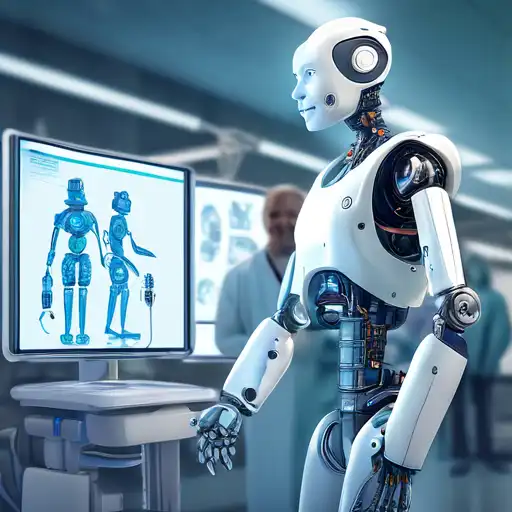The Dawn of Robotics in Healthcare
The integration of robotics into healthcare is revolutionizing the way medical services are delivered. From surgical procedures to patient care, robotics technology is enhancing efficiency, precision, and outcomes in the medical field. This transformative approach is not just a futuristic concept but a present-day reality that's reshaping healthcare paradigms.
Applications of Robotics in Healthcare
Robotics technology finds its application in various facets of healthcare, including but not limited to:
- Surgical Robots: These provide surgeons with unparalleled precision, flexibility, and control, enabling minimally invasive procedures with reduced recovery times.
- Rehabilitation Robots: Designed to assist patients in regaining mobility and strength, these robots are pivotal in physical therapy and rehabilitation.
- Pharmacy Automation: Robots are streamlining the dispensing process in pharmacies, reducing errors, and improving efficiency.
- Patient Care Robots: From lifting patients to providing companionship, these robots are enhancing the quality of care and support for patients.
The Benefits of Robotics in Healthcare
The adoption of robotics in healthcare brings forth numerous benefits:
- Enhanced Precision: Robotics technology minimizes human error, ensuring high precision in surgeries and treatments.
- Improved Efficiency: Automating routine tasks allows healthcare professionals to focus on more critical aspects of patient care.
- Reduced Recovery Times: Minimally invasive robotic surgeries lead to quicker recovery and less postoperative pain for patients.
- Accessibility: Robotics can extend healthcare services to remote and underserved areas, bridging the gap in healthcare accessibility.
Challenges and Considerations
Despite its advantages, the integration of robotics in healthcare is not without challenges. High costs, the need for specialized training, and ethical considerations are some of the hurdles that need addressing. However, with continuous advancements and decreasing costs, robotics is set to become more accessible and widespread in the healthcare sector.
The Future of Robotics in Healthcare
The future of robotics in healthcare is bright, with ongoing research and development paving the way for more innovative applications. From AI-powered diagnostic robots to nanorobots for targeted drug delivery, the possibilities are endless. As technology evolves, so will the capabilities of robotics in transforming healthcare delivery.
For more insights into how technology is shaping the future of healthcare, explore our technology trends section.
In conclusion, robotics in healthcare is not just a game changer; it's a paradigm shift towards more efficient, precise, and accessible medical care. As we continue to embrace these technological advancements, the potential to improve patient outcomes and revolutionize healthcare practices is immense.
